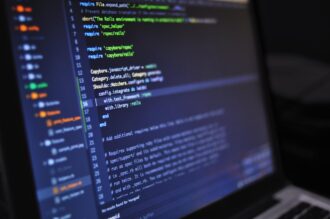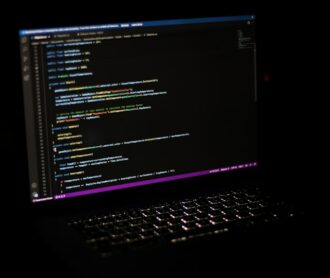
Why Collaboration and Communication Skills Matter for Programmers
Some people still believe programming is a quiet job. You sit alone, write code, solve problems, and go home. But anyone who has spent real time in the field knows it’s not like that. The best programmers are rarely the ones who just code fast. They’re the ones who know how to work with people. The ones who can listen, explain, and build together.
It’s easy to see why this gets overlooked. The stereotype of the “lone genius” still lives on in tech circles. The idea is that a single brilliant developer can build a masterpiece in isolation. Sure, it happens in rare cases. But most software today is a team sport. Even that one-person app you see in the store usually hides a small army in the background: designers, testers, marketers, and managers. And that’s where collaboration becomes essential.
The Hidden Layer in Every Project
Think about it. Every big project starts with ideas bouncing between people. Someone sketches a feature. Someone else challenges it. Another adds a small twist that makes it better. That process is messy. Misunderstandings happen. People misinterpret requirements. And if the communication is weak, the result is code that “works” but doesn’t match what was actually needed.
Good programmers spot these risks early. They ask questions. They don’t just nod and start typing. They clarify things that sound vague. They check in before moving too far in the wrong direction. That habit saves more time than any shortcut in the code itself.
Why Talking is Part of the Job
Some developers see communication as a distraction. Meetings, stand-ups, and feedback sessions can feel like interruptions. But here’s the truth: the moment you’re working with other humans, communication becomes part of the work. Writing code without it is like building a bridge without talking to the engineers on the other side of the river. You might be fast, but you’ll probably meet in the wrong place.
Clear, consistent communication builds trust. It shows your teammates they can rely on you to share progress honestly, flag problems early, and explain your decisions. And trust is currency in a development team. Without it, everything slows down. People double-check each other’s work. They hold back ideas. They stop sharing early concepts because they’re afraid of being misunderstood.
Collaboration Brings Better Code
Here’s a reality that surprises some beginners: two programmers working together can often produce cleaner, more maintainable code than two working separately. Not because they’re writing more lines, but because they might write fewer. It’s because collaboration invites more eyes on the design. You’re more likely to catch mistakes, spot security risks, or find simpler solutions when someone else is part of the process.
Take pair programming, for example. One person writes, the other reviews in real time. It can feel slow at first. But the feedback loop is instant. Bugs get fixed before they even land in the commit. The code ends up more readable. The intent behind each function is clearer because you had to explain it to another person.
Even outside of pair work, a team that reviews each other’s code regularly will naturally keep quality higher. You can’t hide messy shortcuts as easily when someone else will be reading it. And over time, these small improvements stack up.
The Challenge of Remote Work

Remote programming teams have made collaboration more complicated. You can’t just walk over to someone’s desk. Tone and context get lost in chat messages. Time zones delay feedback. In that setting, written communication becomes even more important. A clear message can save hours of confusion.
It also means programmers need to be more intentional about staying connected. That might be through daily updates, video calls, or simply asking for feedback more often. In a remote world, silence can be mistaken for disengagement. If you’re not speaking up, people might assume you’re stuck or unmotivated.
Bottom Line
Clear words make work feel lighter. When you know the goal and trust your crew, projects stop feeling like endless chores. Wins are shared, losses are small, and every stand-up ends with smiles instead of sighs. Practice talking as much as you practice loops and functions. Over time, you will see that the best code is not just clever; it is kind, clear, and ready for the next teammate to pick up and run with.












